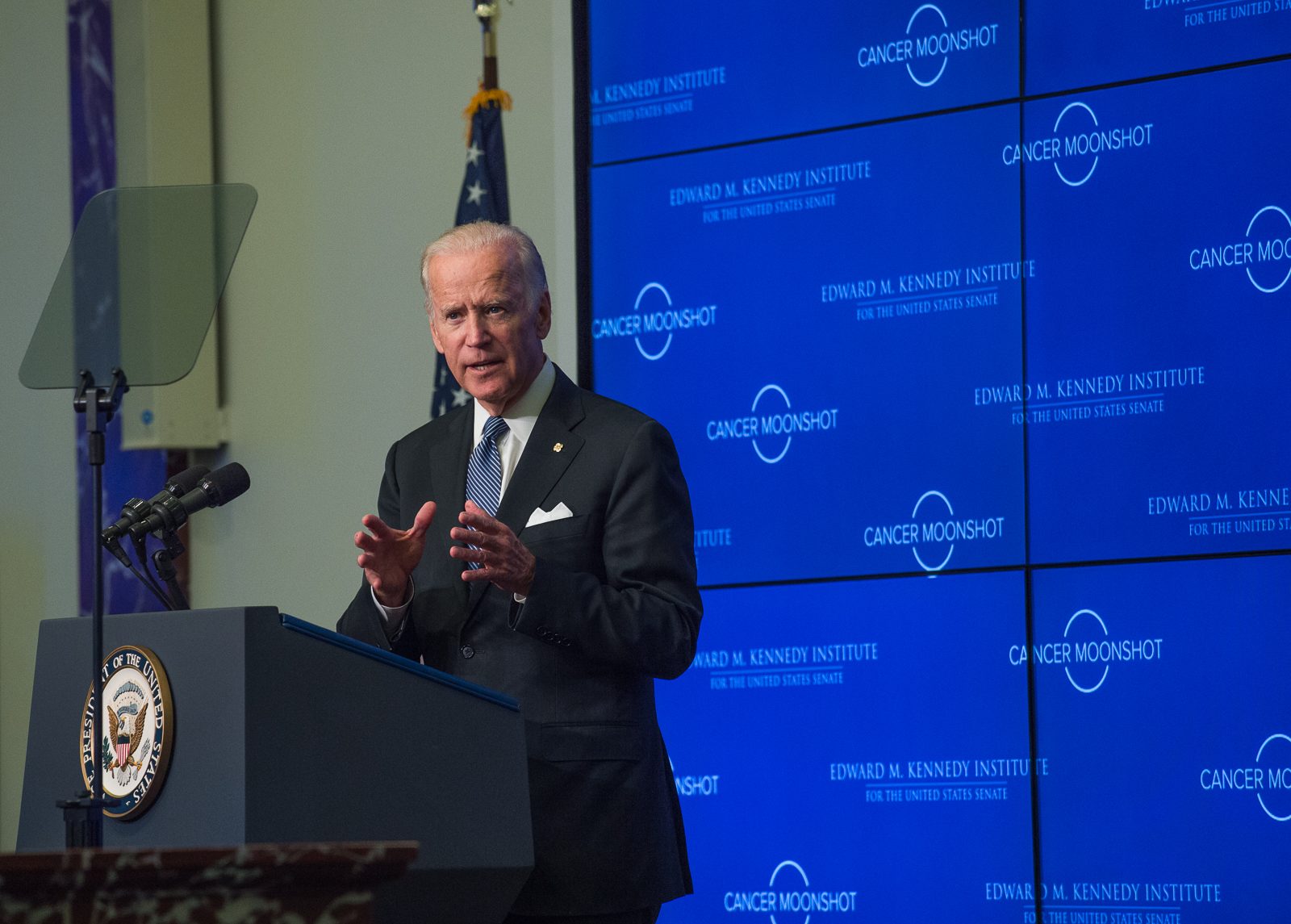
Over 150 politicians, students, cancer research activists and interested individuals gathered at the Edward M. Kennedy Institute in a replica U.S. Senate chamber Wednesday afternoon to hear Vice President Joe Biden give an address about the Cancer Moonshot Initiative.
The Cancer Moonshot, which was first announced this past January during President Barack Obama’s State of the Union address, is a national initiative led by the vice president to accelerate progress in cancer research and treatment. The aim is to double the rate at which cancer research and innovation is developed, according to a press release from the event.
The event was delayed over an hour because Biden was coming from another speaking event in New York. While a few attendees waited for Biden to arrive, they said they were anxious to hear the vice president speak, especially about the important topic of the Cancer Moonshot.
Deanna Klima-Rajchel, a junior in the Boston University College of Communication, said she has heard many politicians speak, but hearing from the vice president will be the most memorable.
“[He’s] the vice president of the whole United States we’re talking about, so this is as big as it gets for me,” she said.
The vice president, whose son Beau Biden died of brain cancer in May 2015, gave an emotional speech describing the efforts and the progress of the task force thus far.
“At its core, the Cancer Moonshot is about two things; first is the injecting urgency … Second, it’s changing the system and culture of medicine that existed in 1971 to accommodate the immense opportunity that exists in 2016,” he said.
Biden said technological advancements have made it possible for innovation in cancer research and treatment today.
“We now have an army; powerful new technologies and tools,” Biden said. “With this Moonshot, I believe we have a clear strategy on how to move ahead.”
One new technology he mentioned during his speech is blood biopsies, which would make it easier for scientists and doctors to detect slow growing cancers, such as colon cancer.
He said the Obama-Biden administration is working with the U.S. Food and Drug Administration to accelerate the pace at which cancer patients can participate in clinical trials.
Biden said he made a report to the president this past Monday about the progress of the Cancer Moonshot Task Force.
“These reports to the American people share a spirit of the American people,” he said. “They give me every confidence that we’re on the cusp of enormous progress.”
Biden concluded by stating that he is confident in the American people to help the Cancer Moonshot become a success.
Biden said he has one regret: not running for president this year.
“I would not be the president to preside over the end of cancer as we know it,” he said. “… The one thing I know, this country has the capacity to do anything, I mean anything it sets its mind to.”
Attendees said they admired Biden for showing emotion during his speech, while talking about such an important topic.
Kaitlyn Solares, a student at University of Massachusetts Boston, and a former intern at the Kennedy Institute, said this was one of the most memorable speeches she’d been to.
“I really admire him for everything that he’s gone through and the strength that he’s showing,” she said. “Even to speak about something that is so emotional to him, and seeing him get choked up while he was talking to channel that pain and passion is so admirable.”
Janet Vrettos, 54, of Durham, New Hampshire, whose husband is a survivor of lung cancer, said she was confident in Biden’s ability to improve cancer research and care.
“He’s a great person and I’m glad he’s doing it,” she said. “If anyone can get it done, he will.”


















































































































